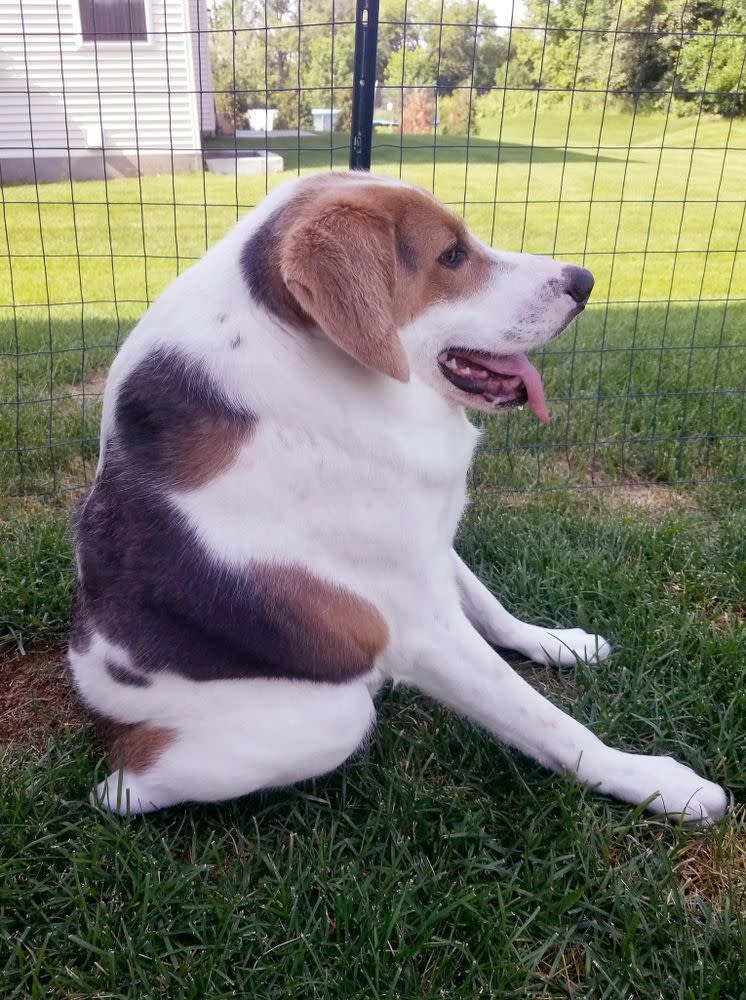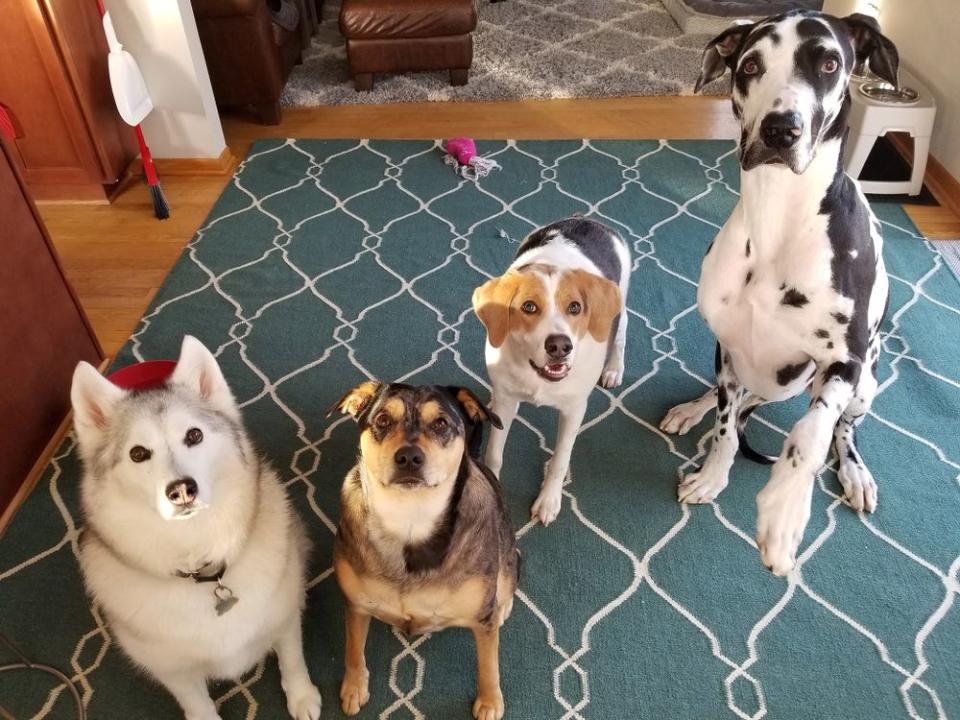Dog Born with Rare Condition Has Only Half a Spine — But That Doesn't Stop Him from Smiling!

A dog from Virginia is not letting anything get in the way of his happiness — not even half a spine!
Meet Cooper: the two-year-old American foxhound who lives with a rare condition called short spine syndrome. Caused by inbreeding, Cooper’s vertebrae are fused together and compressed — leading him to have half the body that a normal dog would.
Despite his deformity, that hasn’t stopped Cooper from being the “happiest dog,” his owners Elly and Andy Keegan told Fox News.
“Many dogs with conditions like Cooper’s are euthanized which makes me so, so sad,” Elly said to the outlet. “They have so much living to do and Cooper is a real example of that. He has a happy, normal little life now and is a key member of our family.”

RELATED: Cuda the Hunchback Dog with Short Spine Syndrome Finds Forever Home
Cooper’s story began in summer 2017, when animal control officers rescued him near a suspected puppy mill in Halifax, Virginia, Fox News said. At the time, Cooper was only two-months-old.
Officers believe that he was abandoned because of the birth defect.


A shelter in Minnetonka, Minnesota, called Secondhand Hounds, eventually took Cooper in and treated the pup for ear mites, worms, and a hernia, until his lovable demeanor caught the attention of Elly and her husband, according to Fox News.
“He’s such a friendly dog,” Elly, 32, said to the outlet. “His condition is caused by inbreeding and it is unconscionable to me that he was just thrown away when the breeders realized he wouldn’t make them money.”
Cooper’s short “corkscrewed” spine makes him appear to have no neck and a short body. In order to look behind him, he has to turn his entire body around, according to Fox News.

RELATED: Instagram Swoons Over New Dog Star Named ‘Beaux Tox’ Who Was Born with a Facial Deformity
Elly also explained to the outlet that Cooper’s spine is fused on his neck and his bottom, which made going to the bathroom rather difficult for the little pooch.
He eventually underwent surgery to assist with his bowel functions so he’s now able to go by himself.
“It’s hard because he can’t go for long walks and can’t spend a lot of time on hard surfaces,” she told Fox News. “He has to be on soft ground like grass or carpet.”

RELATED: After Spending 9 Years in a Puppy Mill, Three-Legged Dog Finally Gets a Taste of Freedom
Despite having a relatively normal dog life, Elly said Cooper has still experienced some scary complications from his deformity.
He suffered a severe fracture to his neck in five different spots after he fell and, recently, was diagnosed with a bone infection called osteomyelitis.
“Because his spine is so compromised, it was dangerous but luckily we got it under control with antibiotics,” Elly told Fox News of the infection, adding that Cooper has since made a recovery from both incidents.
And now Cooper can certainly keep up with his doggy siblings including Elly and Andy’s three other pups, Skylar, 13, Waylon, 3, and Tuva, 4.

He is also being considered as a candidate for a Purdue University study of short-spined dogs.
“Wherever he goes he draws attention but he really revels in it,” Elly told Fox News, adding that Cooper is a social media star.
“He has a lot of fans on Facebook,” she said.
RELATED VIDEO: Rescue Cat with Leg Deformity Pouncing Again Thanks to Colorado Art School
Secondhand Hounds specializes in rescuing at-risk dogs and cats and commit to caring for the animals through adoption, rehabilitation, and hospice care, according to their website.
Since their establishment in 2009, they have saved over 16,000 dogs and cats to help them find a fur-ever home.
As of 2016, there were just 17 dogs on Earth known to have short spine syndrome. While the number has increased since then, it is currently unknown just how many dogs are living with the rare condition.


